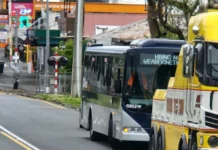Tonga has dropped 12 places in this year’s world press freedom rankings.
The ratings, released by Reporters Sans Frontiers, is based on an Index ranks of 180 countries.
Last year Tonga was placed 37th, a rise from 43rd position in 2015.
Last year RSF said the kingdom’s independent media had progressively assumed their watchdog role since the first democratic elections in 2010.
Tonga now ranks 49th, just above Papua New Guinea (51st) and well ahead of Fiji (67th) but behind Samoa at 21st.
In its report on the rankings, Asia Pacific Report said there had been an increase in tension between the Tongan government and the media since the 2014 election.
APR cited Prime Minister Akilisi Pohiva’s fractious relationship with Tonga’s national broadcaster, instances of politicians suing journalists and the introduction of the Communications Amendment Act, which allows for the creation of an Internet regulatory agency with the power to block websites without reference to a judge.
In contrast, Fiji has risen considerably on the press freedom index. Last year it was ranked 80th, up 13 places from 2015.
Last year RSF praised Fiji’s performance, saying that despite the threats that the constitution and legislation pose to journalists, the media had asserted their independence, improved the public debate and succumbed less and less to self-censorship.
The RSF report has only limited data for the Pacific. There is no data for Vanuatu, the Solomon Islands, the Cook Islands, Niue, other Pacific nations or the French or American territories.
Of the two metropolitan Pacific nations, New Zealand ranked 13th, ahead of Australia in 19th place.
RSF said press freedom was being abused in democracies as well as dictatorships.
“Violations of the freedom to inform are less and less the prerogative of authoritarian regimes and dictatorships,” the RSF said.
“Once taken for granted, media freedom is proving to be increasingly fragile in democracies as well.
“Democratic governments are trampling on a freedom that should, in principle, be one of their leading performance indicators.”
The RSF rankings are based on the level of freedom available to journalists.
The report evaluates pluralism, independence of the media, quality of legislative framework and safety of journalists in each country.
The RSF report is based on responses of experts to a questionnaire devised by RSF.
This qualitative analysis is combined with quantitative data on abuses and acts of violence against journalists during the period evaluated.
The criteria used in the questionnaire are pluralism, media independence, media environment and self-censorship, legislative framework, transparency and the quality of the infrastructure that supports the production of news and information.
The main points
- Tonga has dropped 12 places in this year’s Reporters Sans Frontiers world press freedom rankings.
- Last year Tonga was placed 37th, a rise from 43rd position in 2015.
- Tonga now ranks 49th, just above Papua New Guinea (51st) and well ahead of Fiji (67th) but behind Samoa at 21st.
- In its report on the rankings, Asia Pacific Report said there had been an increase in tension between the Tongan government and the media since the 2014 election.
For more information
Reporters Sans Frontiers world press freedom rankings 2017
Asia-Pacific holds many ‘worst records’ in media freedom report, says RSF







